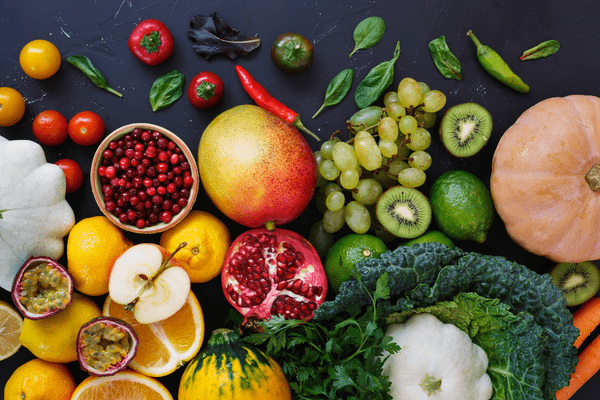Supporting Our Immunity
We can’t actually ‘boost’ immunity!
After the clocks turn back and the nights draw in, the cold, flu (and now covid) season begins to ramp up. You may come across numerous articles suggesting ways to boost your immune system with specific foods.
Our immune system is generally made up of two parts: innate and active or adaptive. It detects threats, such as viruses or bacteria, and triggers an immune response to eliminate them. You can’t boost an innate system and the adaptive system learns by challenges building immunological memory.
However, to work well, our immune system depends on a number of different micronutrients, including vitamins A, B6, B12, C and D and trace minerals such as copper, folate, iron, selenium, and zinc. These are found in many different foods so eating a well-balanced, varied diet is the best way to promote overall immunity. Include plenty of fresh vegetables, fruit, whole grains, beans, pulses, nuts, seeds, fish, and quality meats.
If you want to focus on supporting immune function, here are some examples of foods worth consuming regularly:
-
Garlic – has high levels of sulphur-containing compounds that promote a disease-fighting response of some types of white blood cells – try adding some minced raw garlic to dressings, to a yoghurt dip or at the end of cooking a tomato sauce.
-
Ginger – the active compound gingerol can help lower the risk of infections is anti-inflammatory and contains antioxidants: seep slices of ginger in hot water for 10 minutes to make a warming ginger tea, alternatively grate into stewed apple, or add to a stir-fry.
-
Turmeric – contains curcumin which is anti-inflammatory and is an antioxidant, use liberally in cooking, a lentil or split pea dhal can be comforting this time of year or use to flavour kedgeree with some oily fish and greens.
-
Kiwi fruit – we usually think of citrus for vitamin C but kiwis contain particularly high amounts, delicious eaten as is, with bio live natural yoghurt or add slices to a green salad.
-
Leafy greens –, such as kale and spinach, are available all winter and offer a source of vitamin A and fibre essential for the microbiome. Sauté in olive oil with garlic, add to clear soups or use to make a green frittata.
You can also add in…
Vitamin D – this is crucial for signalling and the activation of the immune system and has both anti-inflammatory and immunoregulatory roles. During the winter months, we can’t synthesise vitamin D via our skin in the UK. Unfortunately, there aren’t many foods that are naturally rich in Vit D3. The best sources are oily fish such as salmon or sardines, and there are small amounts in egg yolk and cheese. But we can’t rely on dietary sources alone so, supplementation can be helpful. The standard dose for adults is 10 μg (micrograms) or 400 IU.
Sleep – getting sufficient amounts and managing stress can be just as important as a healthy diet to ward off colds and the flu. Cytokines are small proteins that activate or slow down an immune response. Sleep deprivation may decrease the production of these protective cytokines. Stress can decrease the number of natural killer cells in the body. It also affects blood glucose balance which can drive unhelpful food choices. Lack of sleep and chronic stress can contribute to illness and overall poor health.
Written by Anna Thomson, NCIM Nutritional Therapist
+++
If you suffer from frequent infections or are concerned about your immune function, book in to see one of our NCIM nutritional therapists or Holistic Doctors who will be able to guide you with appropriate immune-supporting foods and lifestyle measures.


